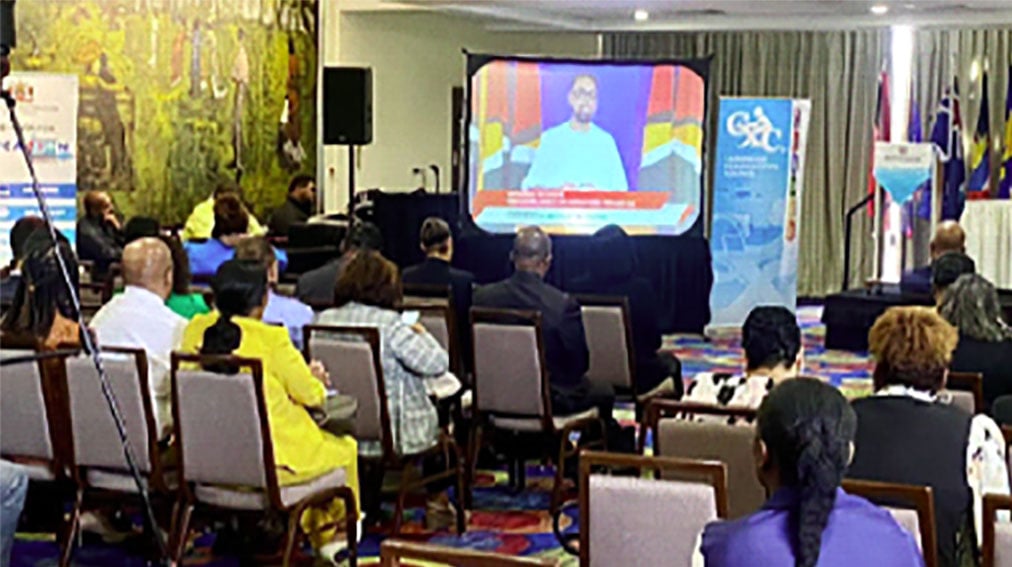– Ali tells regional ministerial summit
President Irfaan Ali is urging educators in the Caribbean not to be unduly apprehensive about the potential impact of artificial intelligence (AI) on traditional teaching methods, but to embrace its challenges and opportunities as a tool for progress and potential to revolutionise personalised learning.
The Head of State voiced this sentiment during his virtual address to the Fourth Annual Ministerial Summit on Educational Transformation in the Caribbean held in Trinidad and Tobago on Wednesday last, where he highlighted the challenges and opportunities facing education, particularly in light of the COVID-19 pandemic and the increasing role of AI and technology.
President Ali acknowledged the impact of the pandemic on education, noting the shift to online learning and the struggles faced by both teachers and students in adapting to digital instruction. He noted the need to address the learning loss experienced during the pandemic and the lingering effects on academic performance.
Ali also addressed educators’ anxieties that AI could undermine traditional teaching methods and diminish their role in the classroom. Emphasising that AI presents both challenges and opportunities, he called for a balance to be struck in harnessing its potential while addressing risks.
“We must adapt and secure our education system to embrace this future. To do otherwise is to risk falling far behind as the world around us leaps forward. The Caribbean is already suffering from a fiscal gap with the rest of the world. While other regions have accelerated the integration of advanced technologies into their education systems, all regions have struggled with this transition. Many of our schools still rely heavily on traditional chalk-and-talk methods. Our teachers [must] receive the training they need to operate effectively in the classroom of the future. This effort will undoubtedly be costly. An IDB study of the wider Latin America and Caribbean regions suggests that any meaningful closure of the fiscal gap would cost some US$68.5 billion for education alone,” Ali said.
Ali also encouraged the summit to embrace technology responsibly, addressing challenges such as ensuring academic integrity in assessments and promoting critical thinking and creativity in education. He underscored the transformative potential of AI in providing personalised learning experiences and enhancing educators’ ability to connect with and inspire students.
As such, the President called for collaborative efforts to accelerate digital learning, reduce the digital divide, and make AI a tool for progress in education. He stressed the importance of preparing students to thrive in a constantly evolving world while ensuring the responsible and ethical integration of emerging technologies in the education system.
“Incorporating AI responsibly, we can empower students to become not just consumers of technology, but … ethical participants in this development. I encourage us to use this meeting as a platform for proposing solutions. Let us focus on how to accelerate digital learning, reduce the digital divide and make AI a tool of progress, rather than a source. Our goal should be to prepare our students to thrive in a world where technology is evolving, while ensuring that they remain critical thinkers capable of navigating a future full of complexity and change,” he said.
The President stated that emerging technologies will introduce a responsive and ethical education system. This means setting up standards for AI use in classrooms, developing guidelines for academic integrity in this digital age, and ensuring that teachers are equipped to lead.







